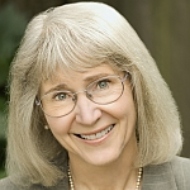Transylvania University in Lexington, Kentucky, honored me with an honorary degree at its Academic Convocation on September 15, 2017. The following is the third (and final) installment of a lightly edited version of my talk on that occasion. In part 1, after introducing myself and NCSE, I described the issues in Kitzmiller v. Dover, and in part 2, I discussed the testimony offered by the expert witnesses for the plaintiffs and Judge John E. Jones III’s decision.
We asked a lot of Judge Jones: to absorb a lot of unfamiliar cell biology, paleontology, genetics, and other sciences. We also threw a lot of history, theology, and philosophy at him, as well as educational pedagogy. But maybe most importantly, we needed him to have analytical skills that would allow him to really think through the structure and logic of our contentions—as well as to assess how well we supported them and to compare our contentions and evidence with those of our opponents.
Remember, this was a judge who had nothing special in the way of a scientific background: he was a political science major with a general liberal arts education from an institution [Dickinson College] very much like Transy. But in fact it was Judge Jones’s liberal arts education that allowed him to handle the diverse issues involved in Kitzmiller v. Dover, and further, to apply the analytical and evaluative skills required to adjudicate this case,
Jones has, in fact, spoken several times about how much his general liberal arts background has helped him in his work as a judge. In an interview, he said:
We are called, as federal judges, the last great generalists in the sense that on any given day, my docket can involve myriad differences, scientific points, engineering, the necessity to write in a fashion that is clear and concise, to digest large amounts of material. So the tools you get as a liberal arts student and the intellectual curiosity that’s developed as a liberal-arts student—all of that comes to bear when particularly you have to pivot from one case to another. As I said after the Dover case, nothing prepared me better than my good liberal-arts education I received at Dickinson College, and I meant that very sincerely. Obviously, you need the legal education to become a judge, but the intellectual curiosity is a parallel tool in what I do, day after day.
I hope you will think about his experience as you plan your future years at Transylvania.
There is, in my opinion unfortunately, a tendency these days to try to encourage students to specialize early: to begin to acquire knowledge and skills in a discipline with the goal of better preparing them for a specific occupation. Yet it is not just the practitioners of law that benefit from a broad background spanning science, social science, mathematics, literature and writing, the arts, and the skills that come with them. It is pretty much everyone: the physician, the teacher, the politician, the businessperson—I cannot think of a practitioner of a profession who would not be better at it with a fuller understanding of the human condition (the province of the arts, philosophy, and the social sciences) and an accurate understanding of the natural world (the province of mathematics and the natural sciences). And there is no profession in which one can succeed without analytical skills and the ability to clearly express oneself through writing and speaking.
Yet perhaps the most valuable result of a liberal arts education is the curiosity that inevitably is stimulated from exposure to many different views and perspectives and disciplines. I hope you will take advantage of the opportunity you have in your years at Transylvania to immerse yourself in the richness of a broad-based, comprehensive liberal arts education. It will be of enormous practical value to you, certainly, but more importantly, it will be of great personal value to you by giving you the tools to look at the world with curiosity, enthusiasm, and dare I say, hope, in the service of making your stay on this planet one that leaves this Earth a better place
Let me end with some words from Judge Jones in a letter he wrote me just this year:
Over time I’ve become even more convinced of the utility of my educational background. I think one of the greatest misapprehensions that the uninitiated have about the value of a liberal arts education is that many of the courses have no real practical application in the “real world.” Or that you may retain little of what you learn as time passes. Of course these miss a very essential point, which is that a truly useful liberal arts education is a beginning, and not an end in itself. It unlocks and enhances intellectual curiosity, and it is that curiosity, properly cultivated through the years, that allows an individual to continue to learn and expand their horizons. …. I have never stopped learning.
May you never stop learning, either!
Thank you very much for this recognition. I cherish my degree from Transy and am grateful to you for giving it to me. Now go out and learn! Have a great year!

